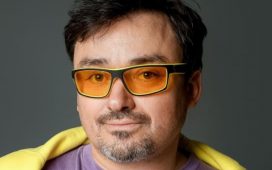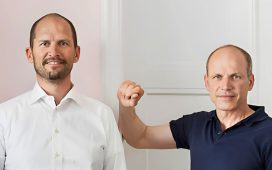“The growth for lithium batteries has been very strong because of new applications, especially for transportation and energy storage,” he said in an interview. “In the telecommunications sector, when procuring energy storage products, all the big companies are asking suppliers to provide their future plans for supply-chain carbon emissions reduction in the next five to 10 years.”
Within the telecoms market where data centre operators require so-called uninterruptible power supply by installing backup batteries, demand for batteries is expected to rise in tandem with data storage demand from the proliferation of artificial intelligence, autonomous driving, and Internet of Things applications.

In April, GRST and Leoch, which has 10 production bases in China, South Asia and Southeast Asia and generated revenues of 13.5 billion yuan (US$1.86 billion) last year, inked a non-binding agreement to explore potential collaboration.
Leoch said at the time it planned to apply GRST’s patented water-based lithium-ion battery manufacturing technologies at its production sites to enhance cost advantages and market competitiveness, while facilitating global sales.
At the same time, GRST aimed to leverage Leoch’s extensive global sales and production network to achieve cost and capacity advantages, while promoting its products internationally.
While details of the collaboration still need to be finalised and are subject to a formal agreement, it could see Leoch license GRST’s technology for use at its production facilities or buy battery cells from GRST to be assembled into battery packs for various markets, Dong said.
Production of conventional lithium-ion batteries is energy-intensive and requires chemicals made from fossil fuels, but GRST’s technology does away with such requirements. Recycling conventional batteries is also highly energy-intensive and emits toxic fumes.
GRST, one of five winners of the 2023 Earthshot Prize in November, received £1 million (US$1.2 million) to help scale up operations. It was the first company from Hong Kong or mainland China to win the prestigious award.
Britain’s Prince William launched the Earthshot Prize in 2020 to search for and scale up the most innovative solutions to the world’s most pressing environmental challenges by 2030.
GRST has a factory in Zhejiang province, where in April last year it started the world’s first commercial production of lithium-ion batteries using water-soluble materials.
Justin Hung Yuen, co-founder and CEO of GRST, said the company and Leoch are collaborating on battery cell engineering and performance evaluation for various battery specifications, to facilitate the planned adoption by Leoch of GRST’s manufacturing technology.
“So far, the results have been encouraging,” he said during a business trip to Europe to discuss with a potential partner the distribution of its products in the region. “We look forward to working with Leoch to meet rising global demand for more sustainable batteries with lower carbon footprints and greater recyclability.”











